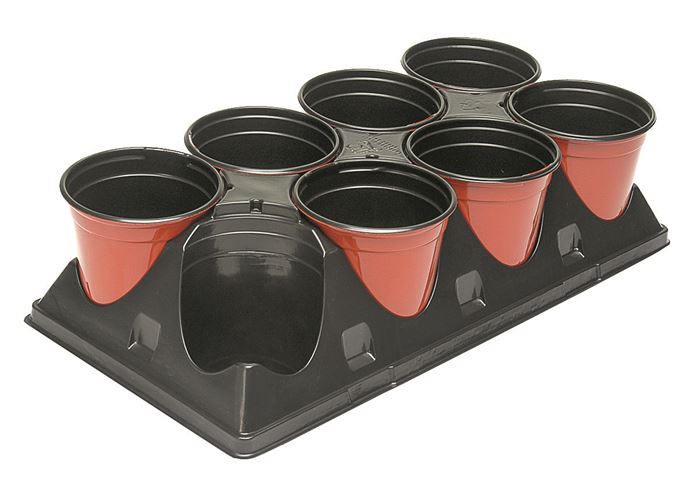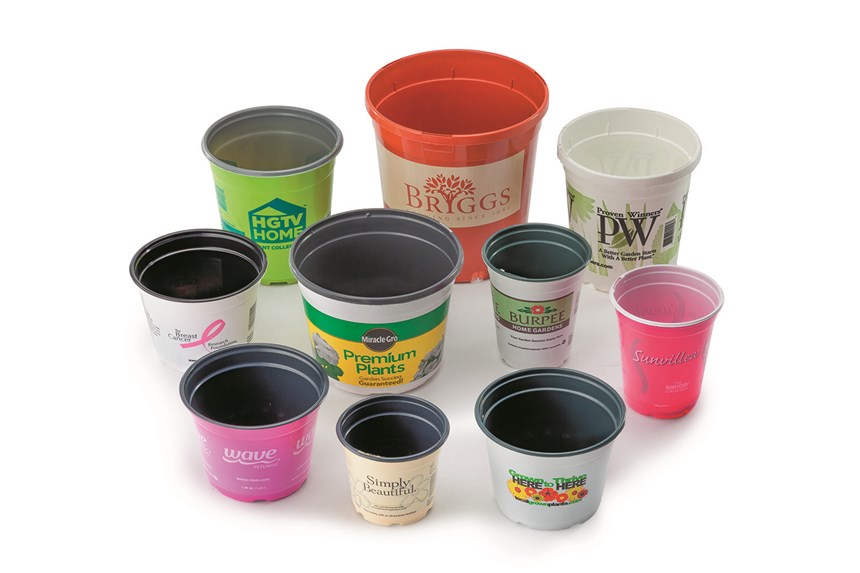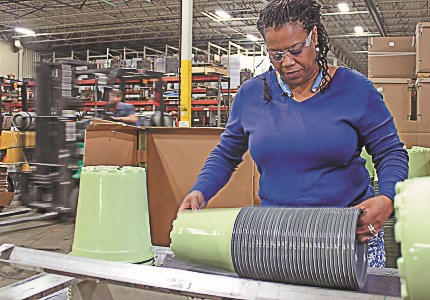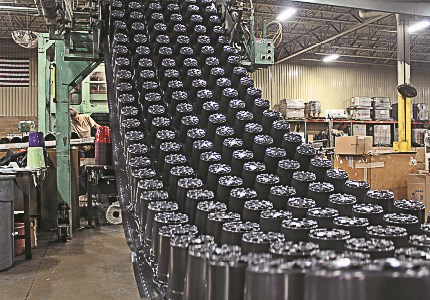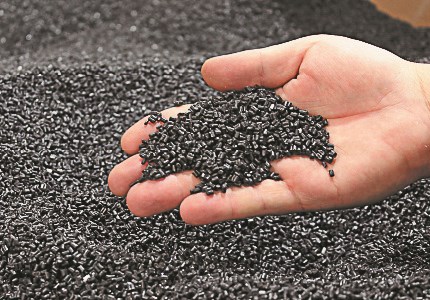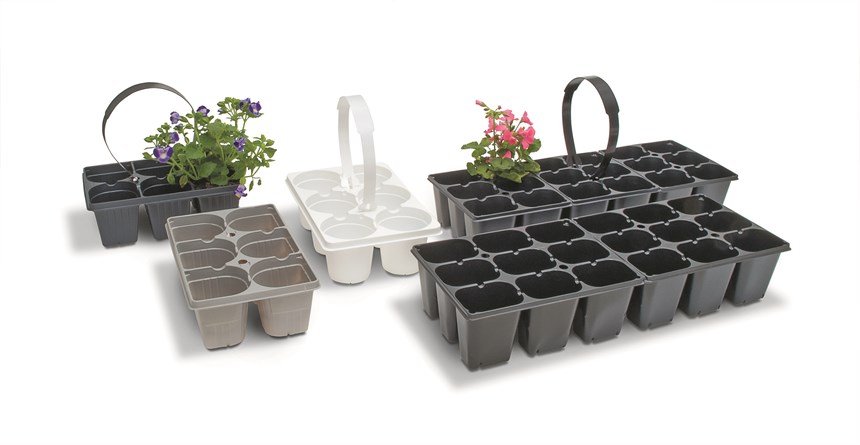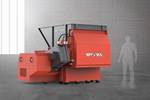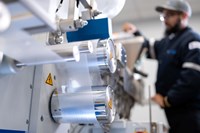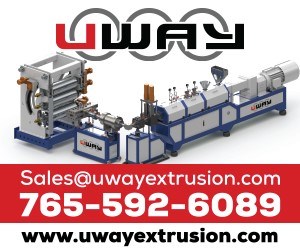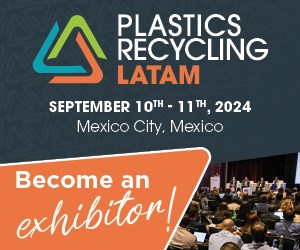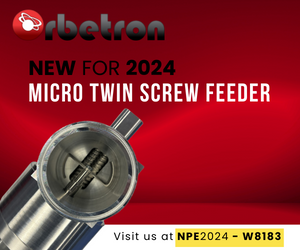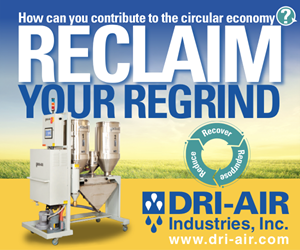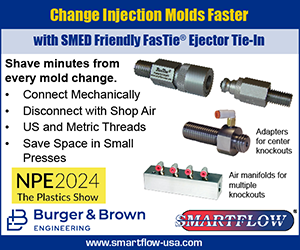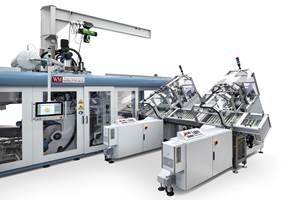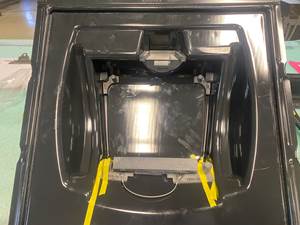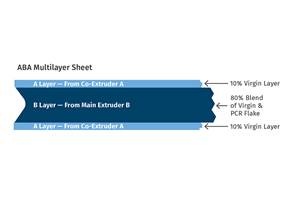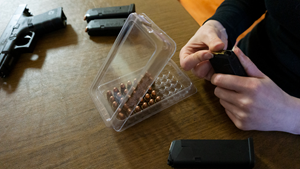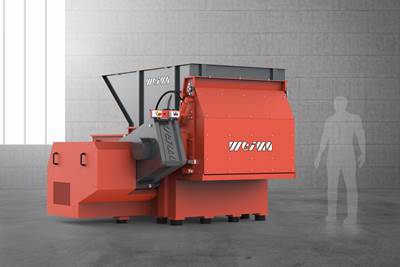Processor Cultivates Success With Recycled Plastics
Landmark Plastic produces packaging and other products for the horticultural industry, using not only its own scrap, but reclaim it collects from growers and retailers.
Not far from the home of basketball legend LeBron James and right next door to the massive Goodyear Airdock, a family-owned processor has found a niche by using millions of pounds of recycled plastic annually to produce products for the horticulture industry. The company designs, manufactures, and distributes a proprietary line of thermoformed and injection molded plant packaging products—from trays, packs, and flats to hanging baskets and decorative pots.
That horticulture market consists mostly of greenhouse growers and retailers, including traditional big-box stores and garden centers. Steven Merzweiler, president and COO of Akron-based Landmark Plastic Corp., says his company services greenhouse growers in North America and has strong relationships with the top 100 growers.
Founded in 1984, Landmark has manufacturing, warehousing, and distribution facilities at its 200,000 ft2 headquarters in Akron, where it employs about 150 people.
HORTICULTURAL PLASTICS DNA
You can say the combination of plastics and horticultural packaging is in the Merzweilers’ DNA. It all started when Leo Merzweiler founded his first plastics company in 1954, and as a plastics and horticultural packaging innovator, he devoted his entire career to both industries. The family’s thermoformed product innovations continued with his son, Bob, and the establishment in 1984 of Landmark Plastic. The two saw a need to provide plastic packaging for the growing horticultural industry that was starting to make its mark in garden centers and big-box retailers.
Bob Merzweiler, Landmark’s chairman and CEO, in addition to his role founding the company, has had extensive involve- ment in many industry and community organizations, including being a founding member and past president of PolymerOhio and a member of the Processor’s Council of the Plastics Industry Association (formerly the Society of the Plastics Industry). In 2014, Bob’s son Steven Merzweiler was named the company’s president & COO. Steven is the fourth generation of family members in the horticulture business and the third generation in horticultural plastic packaging.
“Our production capacity is driven off our industry’s seasonality; greenhouse growers need to plant their crops with enough lead time for the plants to mature to just the right stage before sending them off to retail for sale to the consumer, and so our lead-time is driven off these planting dates,” Steven Merzweiler says. This seasonality peaks in the first and fourth quarters of the year and subsides slightly during the second and third quarters.
“In order to meet the large demand in the peak season, we use historical production demands to plan off-season production. Capacity is stretched during the peak season, so inventory builds are necessary in the off-season,” he explains.
PRODUCTION CAPABILITIES
Landmark designs products and engineers and builds its production tooling in-house utilizing 3D CAD modeling. The company offers a full array of injection molded and thermoformed container configurations. Steven Merzweiler says that the company has hundreds of tooling packages, which translate into thousands of SKUs. In addition, Landmark offers value-added services from custom colors to printing and labeling for nationally and locally branded containers, such as for Better Homes & Gardens, Burpee, and Monrovia.
All of its thermoformed and injection molded product lines of trays and packs are made at its Akron facility. A large portion of the company’s business is thermoforming, which includes 24-7 production capabilities and material segregation and grinding. Its thermoformers are supplied with monolayer and coextruded sheet that Landmark extrudes in-house. For injection molding, the company has presses ranging from 20 to 660 tons, with general-purpose and high-speed injection units, single- and dual-face (stack) molds, and precision blending capabilities.
“We are constantly upgrading our equipment to produce the highest quality product in the most efficient manner,” Steven Merzweiler says. “In addition, we are always looking to add new technologies and products that can add greater value to our customers and ultimately the end consumer.”
CLOSED-LOOP PROCESS
Landmark runs PP and PS, but most of the materials it processes are recycled, Steven Merzweiler says. Landmark has used recycled materials from the start, and it actively participates in many sustainability efforts, which include both collection of plastics for recycling and utilization of these resources in its processes. It offers one of the most comprehensive lines of plastic products for the horticulture industry—and one of the most complete plastic recycling programs, using millions of pounds of recycled plastic each year to make its products.
However, its business model is not without challenges. For instance, metallic contamination and recycled credit cards with magnetic strips can cause major production issues. Steven Merzweiler says the firm has many quality checks in place when receiving raw materials, but some contamination can find its way through occasionally.
Landmark has a closed-loop manufacturing system with all its own scrap being ground and put back into the manufacturing process. In addition, the company arranges for pickup of PP and PS trays and containers from the greenhouse growers and retailers and has them reprocessed by a local recycler.
The company’s closed-loop system begins in its extrusion department, where rolls of PP and PS are produced for thermoforming, and continues at the molding and thermoforming machines. As product is trimmed to size, the scrap is captured through openings in the floor, which feed the material down to large granulators that grind it into flakes in the basement. A blower system conveys this ground flake back into the resin silos, and then to its extrusion process, where it all repeats.
“The top reasons for utilizing recycled raw materials are, first, that it is the right thing to do for the industry and the environment; and secondly, it is good fiscal business utilizing lower-priced, quality recycled materials versus virgin resin,” Steven Merzweiler says. “This allows us to pass on savings to our customers.”
Related Content
Automation in Thermoforming on the Rise
Equipment suppliers’ latest innovations exemplify this trend driven by factors such as labor shortages, higher-speed thermoformers and tighter quality control.
Read MoreThermoformer Maximizes Productivity with 3D Printing
Productive Plastics has created an extensive collection of 3D printed manufacturing aids that sharply reduce lead times.
Read MoreThermoforming PCR: An Equipment Supplier’s Pointers
Thermoforming PCR is not radically different from forming virgin, but variation in recycled materials can require extra care to get a consistent end result. Start by examining every aspect of the process from the sheet (and extrusion process if run inline) to the final trim.
Read MoreNovel ‘Clamtainer’ Extends Thermoformer's Reach in Packaging
Uniquely secure latching expands applications for Jamestown Plastics’ patented clamshell package design.
Read MoreRead Next
Beyond Prototypes: 8 Ways the Plastics Industry Is Using 3D Printing
Plastics processors are finding applications for 3D printing around the plant and across the supply chain. Here are 8 examples to look for at NPE2024.
Read MoreLead the Conversation, Change the Conversation
Coverage of single-use plastics can be both misleading and demoralizing. Here are 10 tips for changing the perception of the plastics industry at your company and in your community.
Read MoreRecycling Partners Collaborate to Eliminate Production Scrap Waste at NPE2024
A collaboration between show organizer PLASTICS, recycler CPR and size reduction experts WEIMA and Conair will seek to recover and recycle 100% of the parts produced at the show.
Read More

